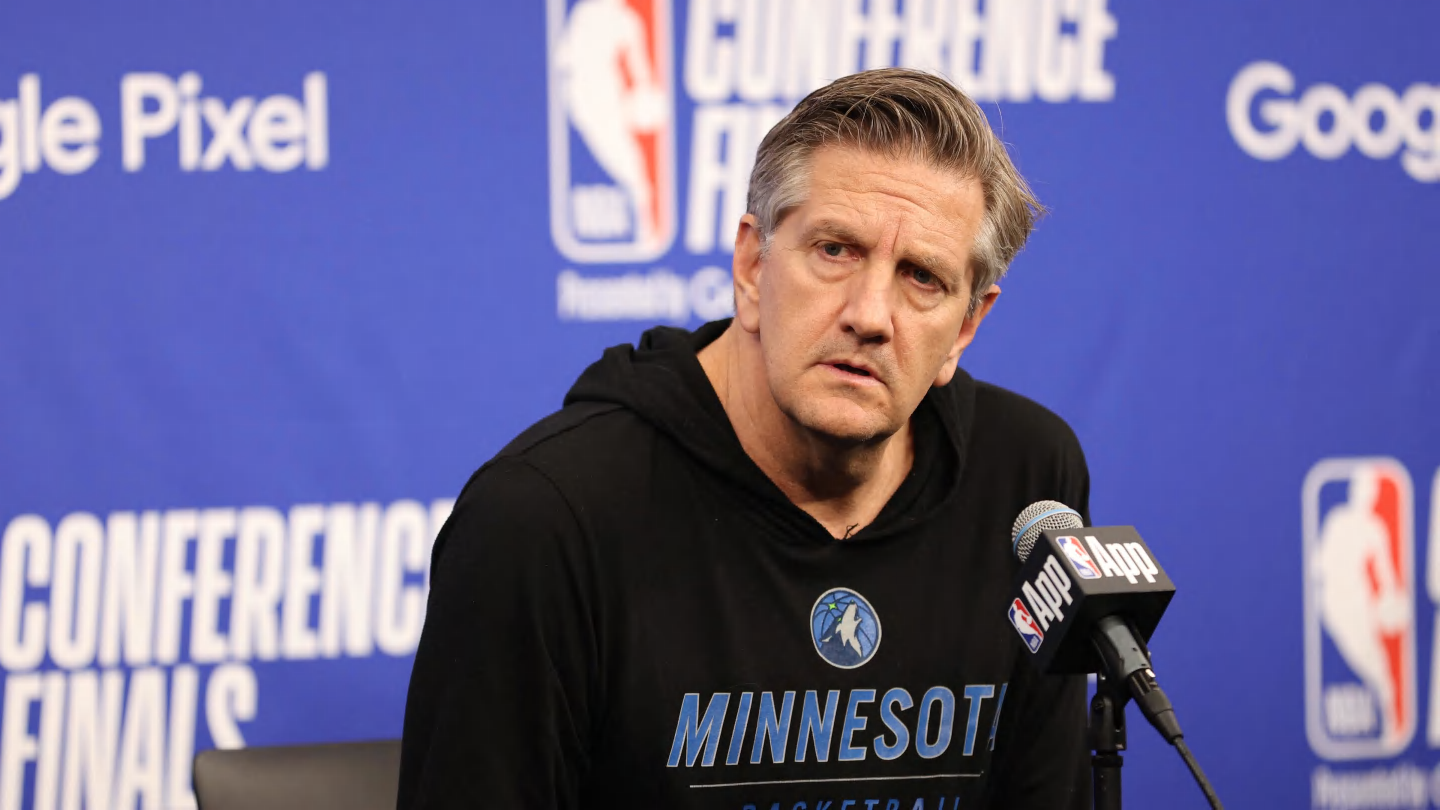Minnesota star Darius Taylor Jr. continues while his father is in prison

Minneapolis — The day after Christmas, more than 100 friends and family members were in attendance at the Quick Lane Bowl as Detroit native Darius Taylor Jr. used cutoffs, power laps and even a rollover to rush for 208 yards against Bowling Green.
For Minnesota Gophers fans, it was another reminder of the freshman’s true talent. For Taylor, it was a chance to show how far he’s come since heading off to college after his time at Walled Lake Western.
However, one prominent family member was unable to attend the big homecoming at Ford Field. Darius Sr., the running back’s father, was 330 miles away at the Chippewa Correctional Facility in Kincheloe, Michigan, and had been in prison since 2012 for murder.
The younger Taylor is preparing for his second season with the Gophers and returns as the team’s best runner and the player around whom the offense revolves.
He is also emerging as a vocal leader and spoke about his family situation in an exclusive interview with the Star Tribune. With his father in prison, Darius Jr. was raised by his aunt Shanika Dennis and his paternal grandmother Carletta Taylor and he praised both of them for their tireless work over the past 13 years.
“They really helped me and guided me in the right direction to make the right decisions,” he said, “and they still do to this day.”
Taylor speaks to his father on the phone almost every day, strengthening a bond that endures despite long distances and difficult circumstances. “He was really important to me,” Taylor says of his father. “I never really lost touch with him, ever.”
Darius Sr. values these conversations and draws inspiration from them.
“He means everything to me,” Darius Sr. said by phone from Chippewa Prison. “He’s my motivation to get out of here. I’m doing everything I can to get out of here.”
Darius Taylor Jr.’s story began in Detroit, a city that had a poverty rate of 33.8% and a median household income of $36,500 in 2022, according to a study by the City of Detroit, the University of Michigan, Michigan State University and Wayne State University. Detroit’s violent crime rate was the second highest in the country in 2022, with only Memphis having a higher rate.
Taylor’s mother was 16 when he was born and his father was 19. The extended family played a big role in his upbringing.
In 2009, Darius Sr. and the father of his girlfriend’s child exchanged gunfire after a heated argument in Detroit, leaving the other man dead. Taylor was 4 years old and in his father’s car at the time of the shooting. He said he doesn’t remember anything.
Darius Sr. was on the run for two years before being arrested in Tennessee in 2011. His attorney argued self-defense at his 2012 trial, but he was found guilty of second-degree murder and two aggravated weapons offenses and is serving a 32-year prison sentence. He lost an appeal in 2014, and his earliest possible release date is Aug. 2, 2043, according to the Michigan Department of Corrections.
Because his father was in prison, Taylor initially lived with his maternal great-grandmother, Bertha Amiker, until she was diagnosed with terminal cancer. His mother was not heavily involved in his upbringing, but his paternal aunt and grandmother came to raise him from the age of six.
“Darius continues to do well in school and on the field, which is super impressive,” said Dennis, his aunt. “I didn’t expect any of this. In my mind, all I wanted was for him to graduate from high school.”
Taylor’s aunt knew the importance of extracurricular activities in keeping kids from getting into trouble, so she got him into football and wrestling. By eighth grade, his football talent was noticed, and by his sophomore year, he became a productive wide receiver. A coaching change at Walled Lake Western brought Kory Cioroch and a new position for Taylor: running back.
The transition did not initially go smoothly.
“We argued at the beginning,” said Cioroch. “As I do with my best players, I pushed Darius to get the best out of him. Eventually he developed trust in me and the coaching staff.”
Taylor responded by rushing for 1,379 yards and 22 touchdowns as a junior. As a senior, he rushed for 2,450 yards and 36 TDs.
“We didn’t have anyone who could run the ball, so (Cioroch) made the switch,” Taylor said. “The rest is really history.”
Cioroch has helped provide a male presence in Taylor’s life, but the coach is also quick to acknowledge the work Dennis has done.
“It’s incredible how she took him in and raised him like her own son in a difficult situation,” Cioroch said. “She was very young, but she made sure he did the right thing.”
Taylor made his mark with the Gophers last fall, rushing for 799 yards despite missing the final five games of the regular season with a hamstring injury. When healthy, he made an impression, averaging 133.2 yards per game. By comparison, the national leader in that category last year, Missouri’s Cody Schrader, averaged 125.2 yards in 13 games; Taylor didn’t play enough games to qualify.
Darius Sr. watches the Gophers games on television in prison. He is proud of his son’s rapid development.
“He showed he’s a beast and a big dog that can hang with the big guys,” Darius Sr. said. He was especially impressed with the bowl performance in Detroit. “He really wanted to play because of his injury, and I told him to just go out there and show them who he is. Let them know you’re there.”
With Gophers fans fearful that Taylor might transfer schools, he quickly announced through the Dinkytown Athletes Name, Image and Likeness (NIL) collective that he would return to Minnesota for the 2024 season.
The 6-foot-4, 215-pound player is ready for another big year and has spent the spring and summer preparing his body for the rigors of the season and getting familiar with new quarterback Max Brosmer.
Taylor is studying business and also works with Minneapolis-based agency Team IFA on NIL deals, which can be game-changing for athletes from less affluent backgrounds. His latest project is Slice Brothers Pizza, a black-owned pizzeria in Minneapolis. Later this summer, Slice Brothers will launch a specialty pizza called “DT1,” which includes pepperoni, bacon and hot honey.
Adam Kado, co-owner of Slice Brothers, believes Taylor is a good fit for his restaurant and his goals of being a community partner and working with athletes.
“When I make a deal with a guy like him, I’m going to make it as fair as possible because I can empathize with him,” Kado said. “Deals like this are exciting for me. I have a passion for athletes.”
For Taylor, the main focus of the NIL contracts is the opportunity to help his family. He remembers the second job Shanika did delivering packages to help pay for his soccer training, and now he has the chance to give back.
“It gives you the ability to provide for yourself, and if you make a lot, you can provide for your family,” Taylor said. “My aunt and grandmother taught me about building generational wealth. It was like a generational curse in my community. I don’t want to call it a curse, but that’s life. … They helped me see the bigger picture.”
Anyone looking at Taylor’s family dynamic from the outside might think that he has had to overcome huge obstacles to get to where he is today. But he himself sees it differently.
“There’s really nothing I’ve had to overcome,” he said. “My grandmother took me in first and was really my rock. She took on that motherly role for me. And I have my uncles and my dad’s friends around me and coaches who are like father figures to me growing up. I don’t feel like I’m missing anything.”
Taylor has also relied on his father for advice, whether over the phone or during two- to four-hour visits to the prison several times a year.
“Now that I’m an adult, he can talk to me about different things and help me with certain things and guide me,” Taylor said. “I also teach him things about the college landscape. He just graduated and is applying for college courses.”
While raising Taylor in West Bloomfield, Dennis wanted to keep him away from situations in Detroit that could quickly deteriorate.
“Their main concern was to keep me out of trouble,” Taylor said. “It’s easy to get into trouble anywhere, but in Detroit it’s really, really easy.”
Darius Sr. also had some advice: control your emotions.
“He really taught me to control myself. Don’t be angry,” Taylor said. “You can’t control the consequences, but you can control the choices you make.”
In addition to his passion for football and his school work in business and marketing, Taylor is interested in prison reform.
“The prison system is really great because it locks people away who have committed heinous crimes,” he said. “But I also think there are some people in prison who probably don’t belong there, and I think it would be good to help them get out of those situations or get them into a program afterward that can get them back into life.”
This impresses his father.
“He has a big heart,” said Darius Sr. “Since he was six years old, he’s seen the people he grew up with and me here, so he tries to help where he can.”
In return, Darius Sr. tries to exert as positive an influence as possible from afar.
“The only thing I can do is talk to him, and I try to talk to him as much as I can. I try to give him a mindset about life,” said Darius Sr. He tells him to work hard. “Anything he wants to do in life, he can do.”



